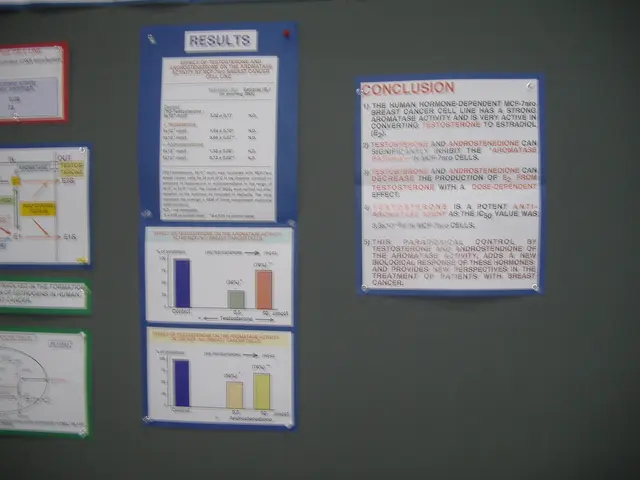Anticipated Timing of the Spending Review and Potential Announcements
The Spending Review is rapidly approaching, placing government departments under pressure as they vie for more funds and Chancellor Rachel Reeves grapples with some tough decisions.
Investors and savers are hoping for no unwelcome tax or pension announcements, while retirees keep their fingers crossed for significant changes to winter fuel payment eligibility rules.
The review will occur less than three months after Reeves' Spring Statement and is part of the "Spending Review 2025", with its first phase taking place in the Autumn Budget, confirming departmental budgets for 2024-25 and setting budgets for 2025-26.
Susannah Streeter, head of money and markets at Hargreaves Lansdown, declares the chancellor's "fiscal juggling act" becoming increasingly complex, as she balances multiple commitments to defense, pay demands, and family and pensioner relief.
According to the Institute for Fiscal Studies (IFS), the Spending Review could prove to be one of the most significant domestic policy events of this parliament.
What is the Spending Review?
The Spending Review is the means by which the government sets departments' budgets for future years, encompassing services such as healthcare, education, and transportation, as well as investments in economic growth, like infrastructure projects and energy security.
The Chancellor of the Exchequer and the chief secretary to the Treasury lead the Spending Review. The Spending Review, initially set department budgets for 2025-26 in the Autumn Budget, and will now confirm spending allocations for the next three to four years.
The review covers two categories of spending: recurring expenses such as salaries, supplies, and administrative costs, and investments in infrastructure and new buildings like schools and hospitals.
The Spending Review will set out recurring expenditures for three years and investment spending for four years.
The upcoming Spending Review will be the first multi-year Spending Review since 2021, and the first to take place outside a pandemic since 2015.
When will the Spending Review occur?
The Spending Review will take place on Wednesday, June 11, 2025, in the House of Commons. The Treasury confirmed to our platform that the announcement will occur around 12:30 pm, following Prime Minister's Questions, with the Spending Review documents being published once Reeves concludes her speech.
What has already been announced ahead of the Spending Review?
The government has made some announcements prior to the Spending Review. For instance, defense spending will climb from 2.3% of GDP to 2.5% by 2027, adding approximately £5 billion annually, and the aim is to rise it further to 3% by the next parliament.
There's also the commitment to provide public sector workers in England with a pay hike of 3-5% in 2025/26 rather than the previously planned 2.8%, which could cost an additional £2-3 billion.
Rachel Reeves is also set to unveil a £15.6 billion package to fund extensions to trams, trains, and buses in Greater Manchester, the Midlands, and Tyne-and-Wear.
Further announcements may be forthcoming in the coming days as the Spending Review approaches.
Meanwhile, some decisions may not have been finalized yet, with media reports indicating that Yvette Cooper, the home secretary, Angela Rayner, the housing secretary, and Ed Miliband, the energy secretary, are still engaged in discussions with the Treasury just one week before the final decisions are announced.
What could be announced in the Spending Review?
During a speech in Manchester, Reeves indicated that not every department will "get everything they want" in the Spending Review and that funding pressure is a result of economic reality. Consequently, some departments may suffer cuts.
Jason Hollands of Evelyn Partners suggests that non-protected departments could face steep cuts if Chancellor Reeves continues to stand by her "iron clad" fiscal rules.
Regarding pension eligibility and winter fuel payments, specific details are not provided in the enrichment data. However, Hollands highlights the potential for alterations to winter fuel payment eligibility rules and the removal of the two-child limit on benefits, to placate backbenchers and campaign groups.
In terms of taxes, the Spending Review will not be a "fiscal event" like the Spring Statement and Autumn Budget, so there will be no changes to borrowing or taxes, according to the Treasury. Nevertheless, Hollands suggests "we may well see some expectation setting, as we saw this time last year, about 'difficult decisions' ahead, with the government potentially leaning into the twin factors of global trade uncertainties and rearmament as behind this."
Streeter points out that Reeves might modify her fiscal reporting rules, as suggested by the International Monetary Fund. "This has the potential to give the chancellor a bit more wiggle room as the government might not be forced to make such frequent spending changes in reaction to changes to the economic outlook, which, as we know, is currently in a state of flux due to the unpredictability of US trade policy," she says.
Lindsay James of Quilter suggests a rethink of the fiscal rules framework would likely be a better approach than raising taxes in the Autumn Budget merely to adhere to self-imposed fiscal rules. She adds, "While no one wants to see a repeat of the total disconnect with reality that led to the disastrous Truss Mini Budget, there is still scope for a different policy framework that minimizes economic disincentives and distortions and prevents already underfunded departments from being asked to magic up further savings."
If revenue-raising tax changes are to be seen in the Autumn Budget later this year, experts predict extending the freeze on income tax thresholds beyond 2028, clamping down on salary sacrifice, and overhauling the inheritance tax gifting regime, as frontrunners.
The Spending Review, approaching on Wednesday, June 11, 2025, could potentially announce changes in winter fuel payment eligibility rules, which might impact retirees. Investors and personal-finance enthusiasts might also follow the review to gain insights into any changes in pension eligibility. Individuals focusing on personal finance and budgeting might find the announced departmental budgets helpful in their financial planning for the next three to four years. The Spending Review will also likely reveal decisions about infrastructure investments and investment spending for four years, which could affect savings and finance, particularly in sectors like transportation and energy security. The review, led by Chancellor Rachel Reeves, will set recurring expenditures for three years and investment spending for four years.




